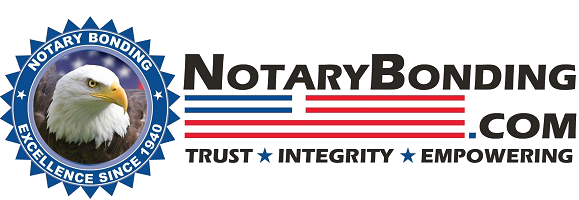 Many people that need signature verification for a document get confused between a medallion signature guarantee and a notary stamp. Both look similar on paper, and one might think they are interchangeable or both equally signify that the identities of signers of a document are valid. However both signature guarantees and notary stamps serve their own unique purposes, are conducted by different people and are used on different types of documents. Understanding the differences between a notary seal and a medallion signature guarantee can save you time and hassle.
Many people that need signature verification for a document get confused between a medallion signature guarantee and a notary stamp. Both look similar on paper, and one might think they are interchangeable or both equally signify that the identities of signers of a document are valid. However both signature guarantees and notary stamps serve their own unique purposes, are conducted by different people and are used on different types of documents. Understanding the differences between a notary seal and a medallion signature guarantee can save you time and hassle.
To quickly summarize, signature guarantees, also known as medallion guarantees are for financial documents and notary stamps are for legal documents. Both signature guarantees and notary seals are used to verify the identity of parties involved and people agreeing to the documents in question.
Who Completes a Notary Stamp or Signature Guarantee?
Medallion signature guarantees can be completed by most banks, credit unions and other types of financial institutions. Most banks will have at least one person on staff that is trained and qualified to provide a medallion signature guarantee. Like notary publics, they require some sort of ID verification like a driver’s license or passport to ensure the signers of the document are in fact who they say they are.
You can ensure that the person performing the signature guarantee is qualified by making sure they are a member of either the Stock Exchanges Medallion Program, the Securities Transfer Agents Medallion Program or the New York Stock Exchange Medallion Signature Program. Those are the only three programs in the United States that produce agents qualified to conduct a signature guarantee.
When is a Medallion Security Guarantee Needed?
Signature guarantees are required by federal law during the transfer of securities. When money and securities is transferred from one individual to another it is important to ensure that both parties agree to the transfer. For that reason a qualified individual from the bank or financial institution must be present to verify signatures and provide a seal of approval that shows that signatures have not been forged, also known as the medallion security guarantee.
When is a Notary Seal Needed?
Notary seals are required for most other major legal documents including wills, contracts, testimonials, loan agreements, powers of attorney and any requested changes to official legal documents. US states each have their own unique rules on how a person becomes an official notary and what they are capable of doing as a notary public. Many states require some sort of training for becoming a notary or some sort of test to ensure qualification. States have different rules but most allow notaries to be a witness for a signature, be a witness for affidavits and to certify copies of documents. It is important to learn the capabilities of notaries in your state to ensure they are able to fulfill any legal service you need.
Notary publics can be found in different locations and often the best way to find one is by doing a search online or by looking one up in your yellow pages.
Who Pays?
In most situations the signer is the one who pays for either a notary service or a signature guarantee. Notaries charge a fee for their services and one notary may charge a higher fee than another for the same work. Many lawyers, banks and credit unions provide notary services of signature guarantee as a complementary service for previous work. Some organizations like AAA offer free or reduced fee notary services for their members.
Notary Stamps and Signature Guarantee Security
Because there is the incentive of fraud and forgery for either financial or legal documents a great deal of security is required to ensure documents are valid. Special notary supplies and signature guarantee supplies are required to ensure security.
Embossed seals or black ink stamps are required for notarized documents and the notary signature is required. Signature guarantees use green ink that is difficult to forge, and the signature of the agent completing the medallion signature guarantee is also required.






